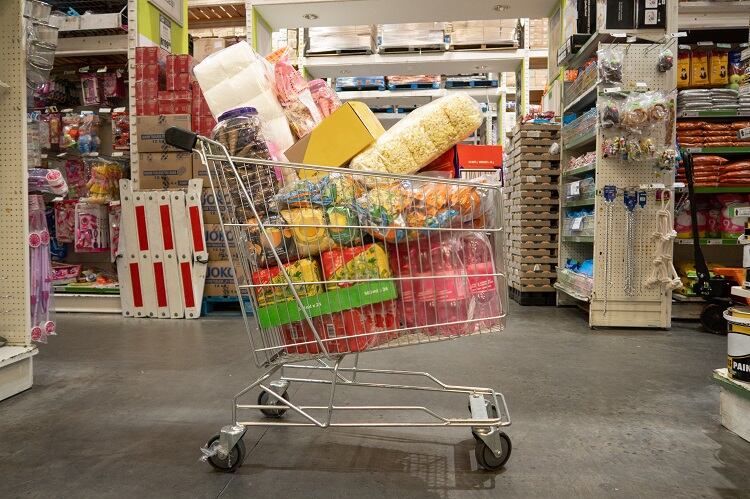The report, from the ‘Put Change on the Menu’ project which is made up of Eurogroup for Animals, the European Consumer Organisation (BEUC) and the European Public Health Alliance (EPHA), analyses how food environments can affect consumers’ food choices across the EU and UK.
A growing body of evidence, the report suggests, shows that food choices are heavily influenced by a complex network of external influences, with not all these influences pointing consumers to healthy or sustainable choices. These networks are called food environments, the physical, economic, socio-cultural and political context through which consumers make decisions about what food to buy, prepare and consume.
“Our current food environments are designed to maximise nutritionally poor foods, leading to a long list of non-communicable diseases with an increasing incidence and burden to society,” said Dr Milka Sokolović, Director General of EPHA.
“Policymakers bear responsibility for reversing this situation in which our food environments make us ill. They must support people in making the healthy and sustainable food choices by making them the default option.”
An unhealthy world
Many food environments across Europe, both circumstantially and deliberately, draw consumers towards making unhealthy choices. These unhealthy choices can contribute to cardiovascular disease, diabetes, cancer, chronic respiratory disease, liver disease, obesity, and poor mental health, which collectively make up 90% of the causes of death in the EU.
The trend is clear in retail. In many cases less healthy options are cheaper and more accessible than healthier ones. Multibuy deals frequently benefit unhealthy snacks. One 2015 survey in the Netherlands found that 70% of promotions in leaflets were for foods categorised as unhealthy.
The retail environment is often carefully curated to promote unhealthy foods. Displays promoting multi-buy deals will usually be placed in supermarket retailers prominently, guiding consumers towards them with colours and signs. Products aimed at children will even be lower down to align with their eye level. These layout choices are often persuasive to consumers, 50% of whom do not have a plan when they begin shopping.
Lower socio-economic status often makes people more likely to be surrounded by fast food outlets. In England, fast food outlets are five times more likely to be found in the poorest areas than the most affluent. In Madrid, Spain all schools had fast-food outlets within 400 metres, but those with more children from disadvantaged backgrounds had a greater number.
While billboard advertising has been insufficiently explored, there are concerns that high numbers of HFSS-centric food advertising on billboards in public places could impact children’s food choices. Food delivery apps, too, are under-researched, but many feel that they make HFSS food more accessible.
Finally, even governments promote unhealthy food choices. For example, the cafeteria of the German Bundestag is full of chocolate bars and cakes, the report found.
Meat and greet
Alongside encouraging consumers towards less healthy options, the report found that food environments will also lead people to less sustainable ones. Most substantially, this is in the promotion of meat and animal-sourced products, which have been found by a range of studies to lead to higher carbon emissions than plant-based products.
The study found that meat and animal-sourced products contain a number of ‘hidden costs’ in the destruction they cause through not only greenhouse gas emissions but land use, water use, diet-related diseases and low animal welfare. This does not mean that food environments don’t encourage consumers to consume these products.
Convenience food, for example, is heavily meat-based. Ready-meals in Belgian supermarkets were found to be only 4% plant-based, with two in three containing meat or fish. In French supermarkets, a full 92% of ready meals contain meat or fish.
Supermarkets can drive consumers away from plant-based options, believe the report authors. An Italian supermarket aisle for ice cream put its plant-based ice-cream at the far end of its 10-freezer aisle, which the report suggests make it far less likely a consumer would stumble upon it if they were not looking for it.
Furthermore, across 18 supermarket chain flyers across 11 EU countries, 24% more advertisements were for meat than fruit, vegetables and legumes (39% if you count meat-based products)
Governments and international institutions have also been known to promote meat consumption. The EU has funded advertising campaigns promoting meat consumption, such as ‘Become a Beefatarian’ (into which it invested €3.6 million) and ‘Love Pork’. On a national level, the Polish government subsidises Milk Bars, or ‘bary mleczne’, whose menus are often predominantly meat-based.
But change is afoot
However, some companies and governments are bucking the trend, promoting both health and less-carbon intensive food products.
For example, German supermarket retailer Lidl has pledged not to use advertising that appeals to children for its marketing of HFSS products, only using such advertising for products that meet WHO nutrient profiling criteria. Another German company, the national railway company Deutsche Bahn, pledged to make 50% of its meals vegetarian or vegan.
In the UK, HFSS junk food is on industry’s radar, with rules limiting the location of HFSS foods in shops has already come into play, and it’s expected more junk food restrictions – including multibuy deals – are on the way.
Governments and public authorities have also pledged to push consumers towards health and sustainability. For example, Transport for London (TfL) in the UK has banned HFSS marketing on its transport, and the city of Copenhagen, Denmark has pledged to reduce the carbon footprint of public meals to a minimum of 25% per capita by 2025.
On a national level, Spain has reduced VAT to 0% on fruit and vegetables, legumes, eggs, bread and milk to help out consumers, while Portugal has done the same thing for fruit, veg, oil, fish and meat.



